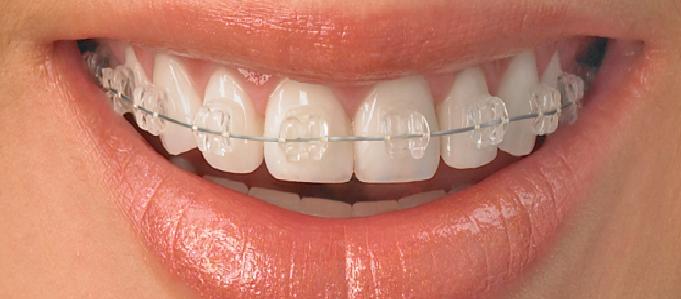Braces
Orthodontic interventions are mechanical preventive or therapeutic techniques to achieve or maintain appropriate alignment of the teeth for aesthetic and/or functional reasons.
People with malocclusion usually have crooked or crowded teeth, and may also have disproportionate jaw relationships. Malocclusion can be inherited or acquired. Teeth can be straightened or moved with the aid of different appliances, commonly known as braces, to improve appearance and function by spreading the biting pressure over all the teeth.
Orthodontic treatment can also control and modify facial growth during childhood and puberty. The most commonly treated orthodontic problems are crowding, protruding teeth, deep overbite, open bite, spacing and cross bite.

Benefits of Orthodontic Treatments
Orthodontic treatment can be useful for the long-term health of teeth. Crowded or crooked teeth are harder to keep clean than straight teeth and are more likely to be affected by tooth decay and gum disease. Malocclusion can lead to abnormal wear of tooth surfaces, inefficient chewing function, excessive stress on the jaw joint, resulting in chronic headaches and facial or neck pain.
Orthodontic problems can also affect a person’s self-esteem. A pleasant, attractive smile can contribute to one’s self-confidence and improve psychic health. See some of our patients who successfully completed their treatment with us.
Appliances
Orthodontic appliances can be removable or fixed, which are custom-made. They can be made of metal, ceramic or plastic, and work by applying gentle pressure to move the teeth. Having an appliance fitted will feel strange at first but does not hurt. Teeth may feel sore for a few days once the braces are on. The lips, cheeks and tongue may also be irritated until they become accustomed to the surface of the braces. While wearing an appliance, a patient must take extra care to ensure oral hygiene.
Braces can trap food lead to plague build-up damaging teeth permanently. Teeth and the appliance must be brushed and flossed several times daily, and sugary, sticky and hard foods should be avoided. Damaged braces make treatment last longer and should be fixed as soon as possible.